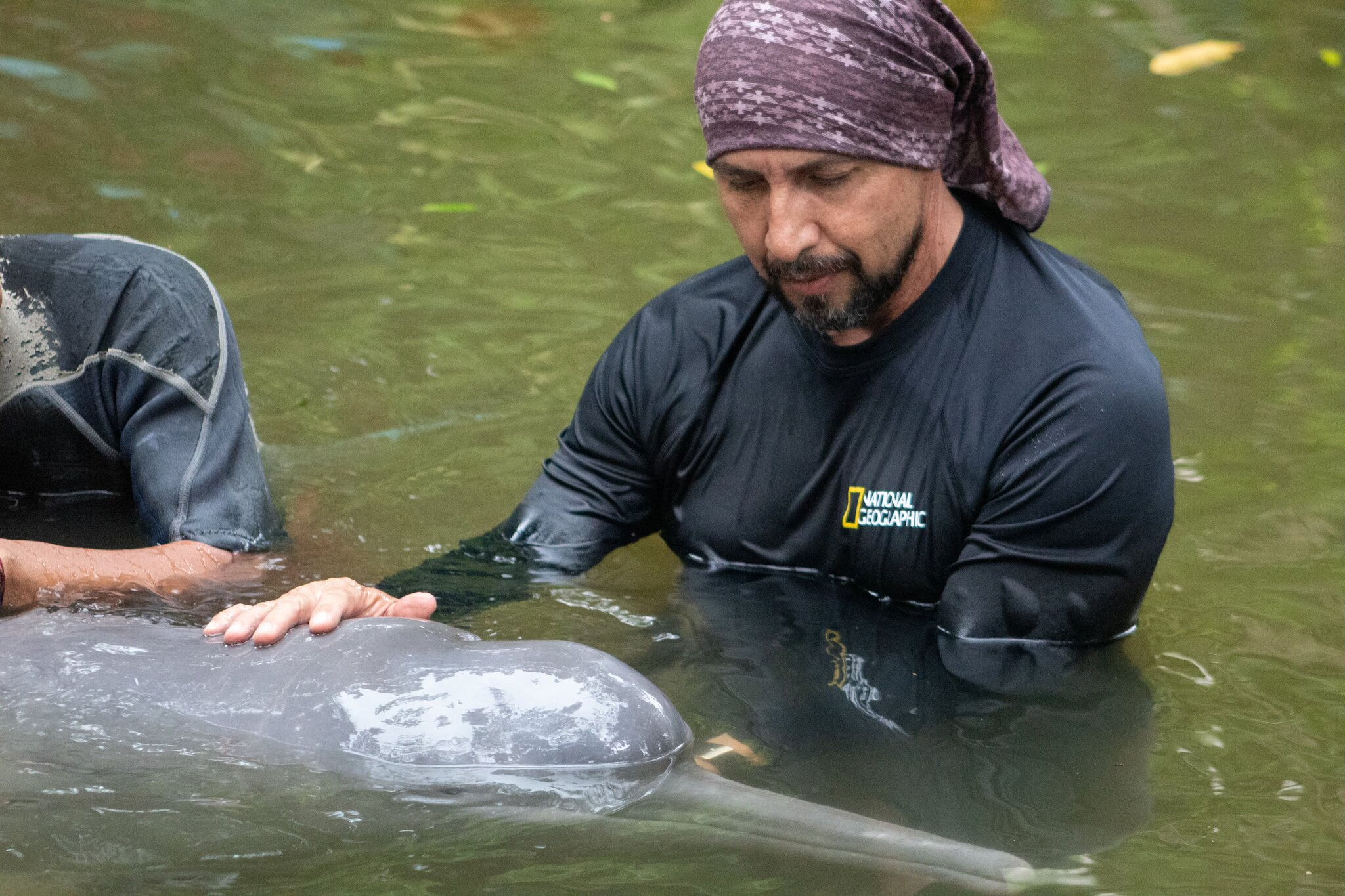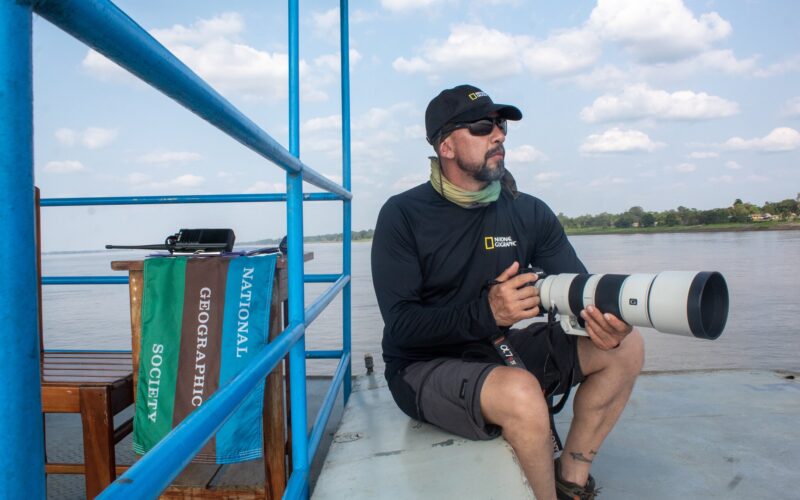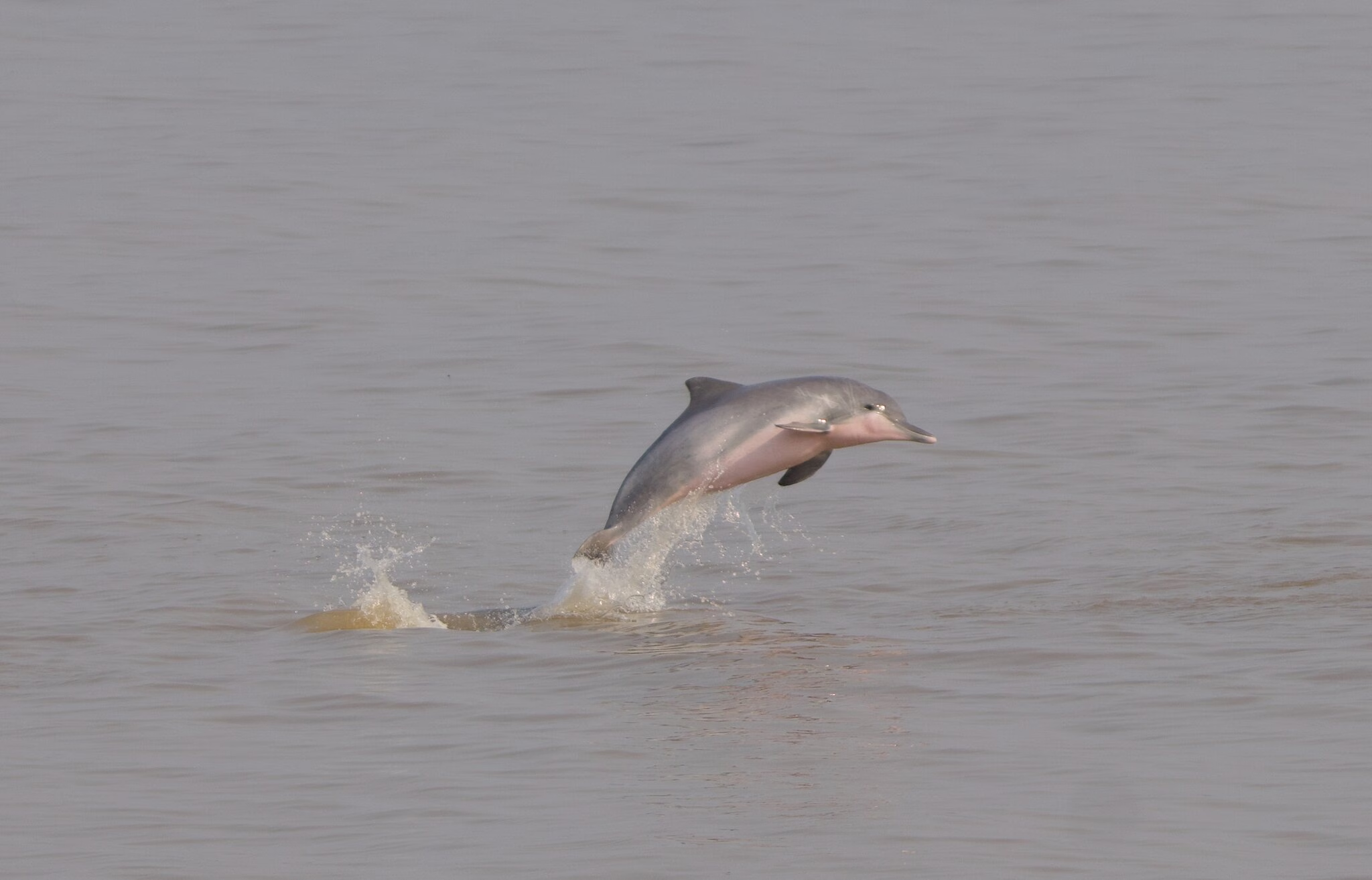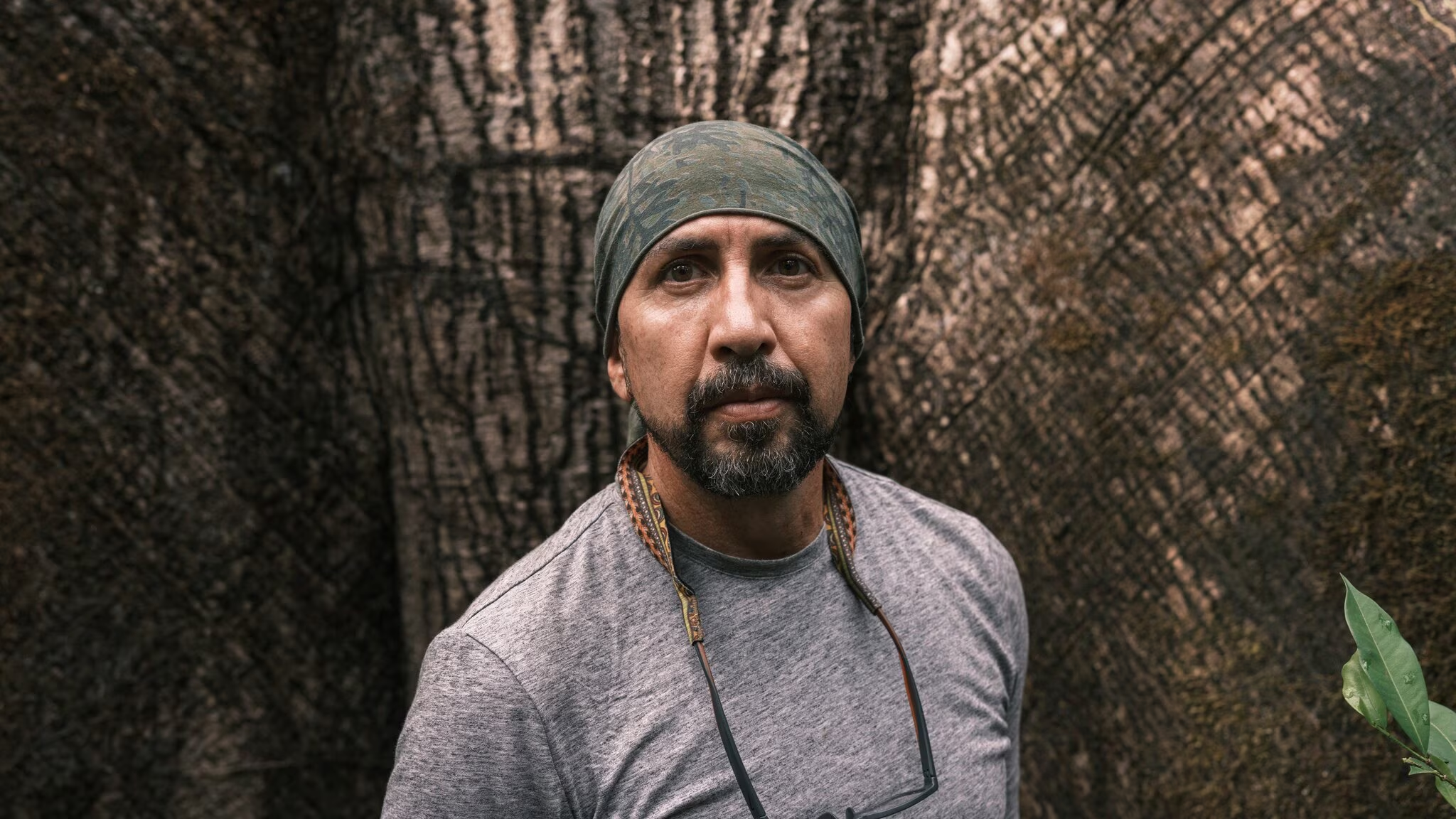Fernando Trujillo has been chosen for his life-long dedication to protecting the Amazon’s dolphins, Trujillo is combining scientific research with action to save an iconic species and care for the Amazon’s riverine communities.

Beleaguered as it is, the environment is not lacking in allies. And these individuals deserve all the recognition and support coming their way. For 70 years, Rolex has partnered with the National Geographic Society in their shared spirit of discovery and dedication to safeguarding the Earth for future generations.
Colombian marine biologist and world-renowned expert on river dolphins Fernando Trujillo has been named the 2024 Rolex National Geographic Explorer of the Year. Chosen for his life-long dedication to protecting the Amazon’s dolphins, Trujillo is combining scientific research with action to save an iconic species and care for the Amazon’s riverine communities. His work is making a difference at a critical time for the region and the planet as a whole.
The Explorer of the Year title recognizes a member of the National Geographic Explorer community who shines a critical light on important issues, discoveries, and challenges facing our planet and inspires the world to act towards a more sustainable future. These individuals’ achievements exemplify Rolex and National Geographic Society’s joint aims of using exploration, pioneering science and bold ideas to care for the environment and people in perpetuity.
Rolex supports the award as part of its Perpetual Planet Initiative, which champions those who are at the forefront of finding solutions to the world’s environmental challenges. Trujillo has embodied these missions throughout his many years fighting for the protection of Amazon river dolphins. Over more than three decades, he has committed himself to this spectacular species and to ensuring sustainable livelihoods for the local communities that depend on the river’s resources.
Trujillo has always felt a connection to animals and the water. As a child, his grandfather would take him to the Orinoco River. Winding its way from Venezuela and Colombia out into the Atlantic Ocean, its habitats and wildlife are incredibly diverse. It was a perfect place to find inspiration in the natural world. However, it was on a trip to the Amazon River where Trujillo first met his lifelong love: river dolphins.
These highly inquisitive creatures range throughout the Amazon, and are a critical part of its ecosystem. Their importance is well-recognized by indigenous communities, who view river dolphins as sacred. Despite their revered status, they are now endangered; threatened by rising water temperatures, deforestation, pollution and conflict with fishermen.
During a university seminar with esteemed oceanographer Jacques Cousteau, Trujillo’s path was set. He asked Cousteau what was important to study and was met with a simple reply; dolphins. “There are river dolphins in Colombia and nobody is doing anything to protect them.” Cousteau told him.
When Trujillo began working in the Amazon at just 19 years old, an incident in which fishermen accidentally trapped a river dolphin and her calf persuaded him to set up a permanent base in the area. In the decades since, alongside his scientific endeavors, Trujillo has worked closely with regional governments and local communities to find solutions that benefit everyone.
This intimate and long-standing relationship was honored by the indigenous Tikuna people, who named Trujillo “Omacha”, meaning a dolphin that became human. It was an appropriate title for someone who not only protects the river dolphins but shares their most famous characteristic – infinite curiosity.
As a leading expert in aquatic vertebrates with a doctorate in zoology, Trujillo co-founded Fundación Omacha, an organization that promotes sustainable development and conserves aquatic ecosystems in Colombia. The foundation performs a range of activities, from developing fishing agreements to planting trees.
Now its scientific director, Trujillo works with a team of conservationists to carry out scientific studies that are strengthening and improving river management practices and protections. By also training other researchers and local people in conservation, they are sharing their knowledge and passion for protecting the river and its inhabitants.
Trujillo is currently participating in the Rolex and National Geographic Perpetual Planet Amazon Expedition, exploring the ecosystem functions that keep the world’s largest freshwater basin alive. His team is following the Amazon’s tributaries through seven rivers and across four countries, conducting health assessments of river dolphins as a barometer of river health to help identify critical areas to focus conservation efforts.
In 2023, Trujillo led a meeting on the global declaration for the protection of river dolphins and their rivers that resulted in 11 countries signing a first-of-its-kind declaration committing to develop research-based, transboundary solutions to protect river dolphins around the world.
Rolex and National Geographic Society are proud to celebrate Trujillo’s ongoing commitment to protecting the Amazon’s dolphins. By acting as a global advocate for river dolphins and gaining a deeper understanding of the ecosystems on which they depend, Trujillo is making an impact that will continue across generations.
His solution-based science and unending energy is illuminating both the conservation stories and local knowledge in the river basin. A truly deserving recipient of the Rolex National Geographic Explorer of the Year Award, Trujillo shows what one pioneering leader can achieve to help create a perpetual planet for us all.
For nearly a century, Rolex has supported pioneering explorers pushing back the boundaries of human endeavor. The company has moved from championing exploration for the sake of discovery to protecting the planet, committing for the long term to support individuals and organizations using science to understand and devise solutions to today’s environmental challenges.
This engagement was reinforced with the launch of the Perpetual Planet Initiative in 2019, which initially focused on individuals who contribute to a better world through the Rolex Awards for Enterprise, on safeguarding the oceans as part of an established association with Mission Blue and on understanding climate change via its long-standing partnership with the National Geographic Society.
The initiative’s portfolio continues to expand with more than 20 partners, including Cristina Mittermeier and Paul Nicklen in their work as conservation photographers, Rewilding Argentina and Rewilding Chile, offspring organizations of Tompkins Conservation, which are protecting landscapes in South America, Coral Gardeners, transplanting resilient corals to reefs, the Under The Pole expeditions, pushing the boundaries of underwater exploration, and Steve Boyes and the Great Spine of Africa series of expeditions, exploring the continent’s major river basins.
Rolex also supports organizations and initiatives fostering the next generations of explorers, scientists and conservationists through scholarships and grants, such as Our World-Underwater Scholarship Society and The Rolex Explorers Club Grants.







